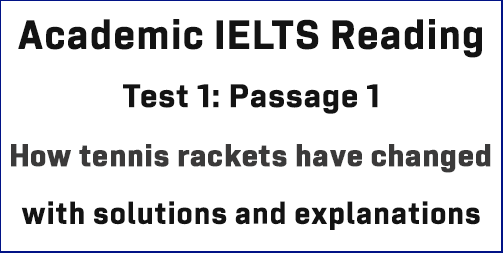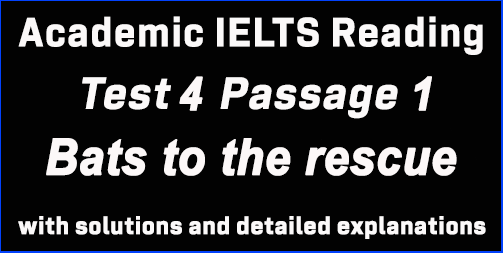Mastering the Art of Inference: A Key to IELTS Reading Success
In the competitive landscape of IELTS Reading, mastering the art of inference is akin to wielding a potent weapon. While many test-takers diligently focus on enhancing their comprehension skills, the ability to make inferences sets apart the high achievers from the average performers. Inference, the skill of reading between the lines, discerning implicit meanings, and drawing logical conclusions, is not merely an academic prowess; it is the cornerstone of success in the IELTS Reading module. In this comprehensive article, we will delve deep into the world of inference, exploring its multifaceted significance in IELTS Reading. Through detailed explanations and real-life examples, we will unravel the nuances of inference, providing aspiring test-takers with invaluable insights to ace this critical aspect of the exam.
Understanding Inference: A Deeper Dive
At its core, inference is about more than just deciphering words on a page. It embodies the ability to comprehend the underlying message, recognize patterns, and grasp the implicit connections within a text. In IELTS Reading, this skill is not an isolated entity; it intertwines with other crucial abilities such as critical thinking, analytical reasoning, and linguistic proficiency. By understanding the subtle interplay between words and ideas, test-takers can unravel complex passages and respond to intricate questions with finesse.
The Significance of Inference in IELTS Reading
Enhanced Comprehension and Interpretation: Inference empowers readers to transcend the surface level of a text. By deciphering implied meanings, readers gain a deeper understanding of the author’s intent, enabling them to interpret the text in a nuanced manner. This depth of comprehension is vital for answering questions that demand a profound grasp of the material.
Efficient Problem Solving: IELTS Reading is a time-bound assessment, requiring test-takers to optimize their problem-solving strategies. Inference equips individuals with the ability to glean information efficiently. Instead of searching for explicit answers, skilled inferencers can deduce solutions from the contextual fabric of the passage, thereby saving crucial time during the exam.
Navigating Ambiguity:
Complex texts often contain ambiguous or convoluted statements. Inference acts as a guiding light in such situations, enabling readers to navigate through the haze of uncertainty. By making logical deductions, readers can unravel the intended meaning, even when the information is not overtly stated.
Examples of Inference in IELTS Reading: Illuminating the Path
Example 1:
Passage Excerpt: “The scientist’s groundbreaking research led to a revolutionary breakthrough in renewable energy technology.”
Inference: The scientist’s research significantly contributed to advancements in renewable energy technology.
In this example, the inference requires recognizing the cause-and-effect relationship between the scientist’s research and the subsequent breakthrough in renewable energy technology. Although the passage does not explicitly state this connection, readers must deduce it to comprehend the full impact of the research.
Example 2:
Passage Excerpt: “Despite facing immense financial constraints, the orchestra delivered a mesmerizing performance that captivated the audience.”
Inference: The orchestra’s financial challenges did not hinder the quality of their performance.
Here, the inference involves understanding that the orchestra’s financial constraints did not negatively impact their performance quality. Deducting this implicit information enhances the reader’s comprehension of the passage.
Example 3:
Passage Excerpt: “The author’s evocative storytelling and vivid imagery transported readers to distant lands, eliciting a strong emotional response.”
Inference: The author’s writing style deeply resonated with readers, evoking strong emotions and immersing them in the narrative.
In this case, the inference necessitates recognizing the impact of the author’s writing style on the readers. Although the passage does not explicitly state the emotional response, readers must infer it based on the descriptive language used.
Strategies to Hone Inference Skills: Sharpening the Blade
Active Reading: Engaging with the text actively is paramount. Pose questions, make predictions, and analyze the author’s tone and intent. Active readers are more adept at recognizing implicit meanings and drawing accurate inferences.
Contextual Analysis: Pay meticulous attention to the context surrounding ambiguous statements. Contextual cues provide valuable hints, aiding readers in making logical inferences. Analyze the preceding and succeeding sentences to discern the intended meaning effectively.
Vocabulary Enrichment: A robust vocabulary is the bedrock of inference. Proficiency in synonyms, antonyms, and idiomatic expressions enhances the reader’s ability to discern subtle nuances within the text. Regular vocabulary enrichment activities broaden the reader’s linguistic horizons, equipping them with a diverse array of words and phrases to decode implicit meanings.
Practice and Exposure: Regular practice with diverse reading materials is indispensable. Exposure to various genres, writing styles, and topics refines the reader’s ability to infer meaning across different contexts. Solve a plethora of practice questions, analyze complex texts, and engage with diverse literary works to hone your inference skills.
Critical Thinking Exercises: Engage in critical thinking exercises that challenge your ability to make logical deductions. Analyze arguments, evaluate evidence, and draw conclusions based on limited information. These exercises enhance your reasoning abilities, making you more adept at making accurate inferences in the IELTS Reading module.
How to answer Inference questions in the IELTS Reading exam:
Being able to read between the lines is an essential skill, especially when it comes to language. That’s why the IELTS Reading section includes questions that test your ability to infer meaning from passages.
When you encounter an inference question on the IELTS, it’s all about figuring out what the author meant in a specific paragraph. Sometimes, you’ll need to find the hidden message or implied meaning in a passage.
To tackle these questions, carefully read the paragraph in question. Look for information that isn’t directly stated but can be understood from the context. This implied information is what you’re being asked to infer. If you’re ever unsure, try thinking, “so, that means…” while reading the passage. It can help you identify the implied meaning.
Remember, you don’t need to overthink it. The answers you’re looking for are usually right there in the text. Stay focused, and you’ll be able to handle these questions with confidence.
Conclusion: Empowering Your Journey to Success
In the dynamic realm of IELTS Reading, mastering the art of inference is not a mere advantage; it is a requisite for success. The ability to read between the lines, discern implicit meanings, and draw logical conclusions elevates your performance from satisfactory to exceptional. By embracing active reading habits, decoding contextual clues, enriching your vocabulary, and engaging in rigorous practice, you empower yourself to tackle the most intricate passages with confidence and finesse.
Remember, inference is not a standalone skill; it is a testament to your intellectual acumen and analytical prowess. As you embark on your IELTS journey, nurture your inference skills, and witness the transformation in your reading abilities. The art of inference is not just a gateway to IELTS success; it is a lifelong skill that enhances your overall cognitive abilities, enabling you to navigate the complexities of the written word with mastery and poise. So, immerse yourself in the world of inference, embrace its challenges, and embark on a transformative journey toward excellence in IELTS Reading and beyond.




Its really good to got constantly guide from you..my exam in is 18 november..why i dont find any cambridge 17 or 18 answere.. I am quite addictid with your explanation.
Plz plz c17 or c18 explanation
I will be glad plz🙏